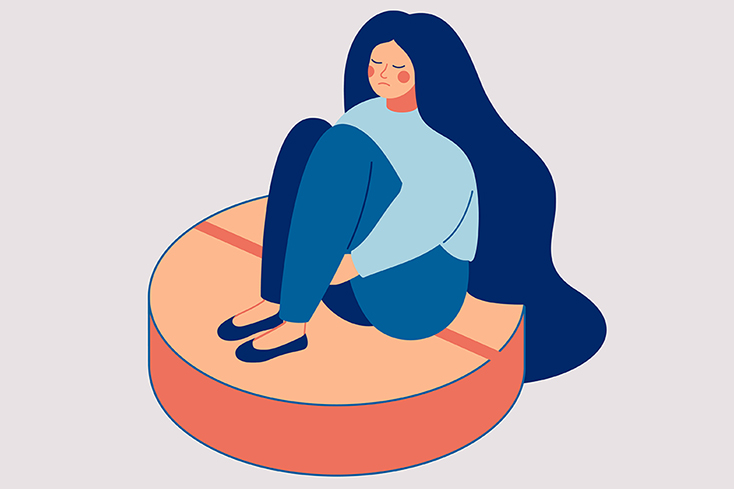
By Jason Jepson
I have schizoaffective disorder. Part of how I manage it is by taking anti-psychotic medication. Currently, I take two anti-psychotics, and with that help, I often have symptom-free days. On a symptom-free day, I do not hear voices. I do not get paranoid about my neighbors. And I do not experience delusions.
My anti-psychotics can have several side effects. Three of the most common are weight gain, constipation and lightheadedness. These may seem insignificant, but weight gain can contribute to diabetes, constipation is uncomfortable and being lightheaded can stop me in my tracks.
For me, these side effects can be powerful, and I often ask myself if it is worth it to be symptom-free. Is it worth the discomfort of anti-psychotics making my mind less schizophrenic, or would I rather be closer to the recommended weight of someone my height? Would I trade constipation for delusion? Is the inconvenience of having to sit down because I feel slightly lightheaded enough to make me want to give up my antipsychotics? These are the questions I ask myself when I consider my mental health versus my physical health.
Through asking myself these questions, I have concluded that I can manage these side effects, and by doing so, I can have many symptom-free days.
How I Combat These Side Effects
I try to combat weight gain by maintaining a proper diet and with regular exercise. I exercise about six times a week, and I do my best to not eat chips and sweets. On some days I wish I could get rid of my belly and have six-pack abs, but even when I was in the Army, I did not have six-pack abs. So why do I expect that would happen now? I see muscularly defined people and wish I could be the stereotypical strong muscular man. However, I have come to accept that I have too much working against me to achieve this.
Constipation can be both physically difficult and uncomfortable to discuss. Knowing and accepting this can be the best way to confront this subject. I try to combat my constipation by drinking fluids, especially water. Coffee helps, too. I do my best to go to the bathroom as often as possible before I begin a workout. Through honest discussions with my doctor, I have also been prescribed medication that helps with this problem.
Sometimes I can feel lightheaded as if my brain is floating in air. It is a sensation that I cannot ignore. I immediately grab hold of something or sit down. This happens when I get up too fast or when I am working out. This sensation has been thoroughly investigated by my doctors through multiple tests with no positive results, so we are left to believe this is a side effect of my antipsychotics. So when this happens, I just pause whatever I am doing for a few moments and take a few sips of water. I know that the sensation will eventually pass.
Why It’s Worth It
Ultimately, the trade-off is worth it. Without anti-psychotics, I would be dead or in jail. Without antipsychotics, I would not be as close to my parents, my support system, as I am. These are good enough reasons to have a belly, to feel the need to have another cup of coffee, or to just sit down and breathe. With anti-psychotics, I have the ability to feel mentally free.
I have come to think of my antipsychotics as friends. As with friendships, sometimes we do not agree with each other about everything. Sometimes we may have arguments, but a friend is there to help, and the benefits of friendship outweigh not having them in my life. My anti-psychotics can have negative side effects, but there are ways to compromise and keep them a valuable part of my life.
Jason Jepson lives in Richmond, VA, where he is Chair of the Veterans Council at the McGuire Veterans Hospital. His story of recovery has been published in numerous online and print publications such as Yahoo News, The Mighty and OC87 Recovery Diaries. He has also written two books, “When We Were Young,” a fictionalized memoir of his late teens, and a book of poetry called “Misfires of a Lyrical Mind.” Jason is proudest, however, of his first-person accounts that are published several times a year in Schizophrenia Bulletin, an academic journal published by Oxford Press. He is honored to be part of Students With Schizophrenia, and he is happy to share his life experiences in hopes of helping others.
